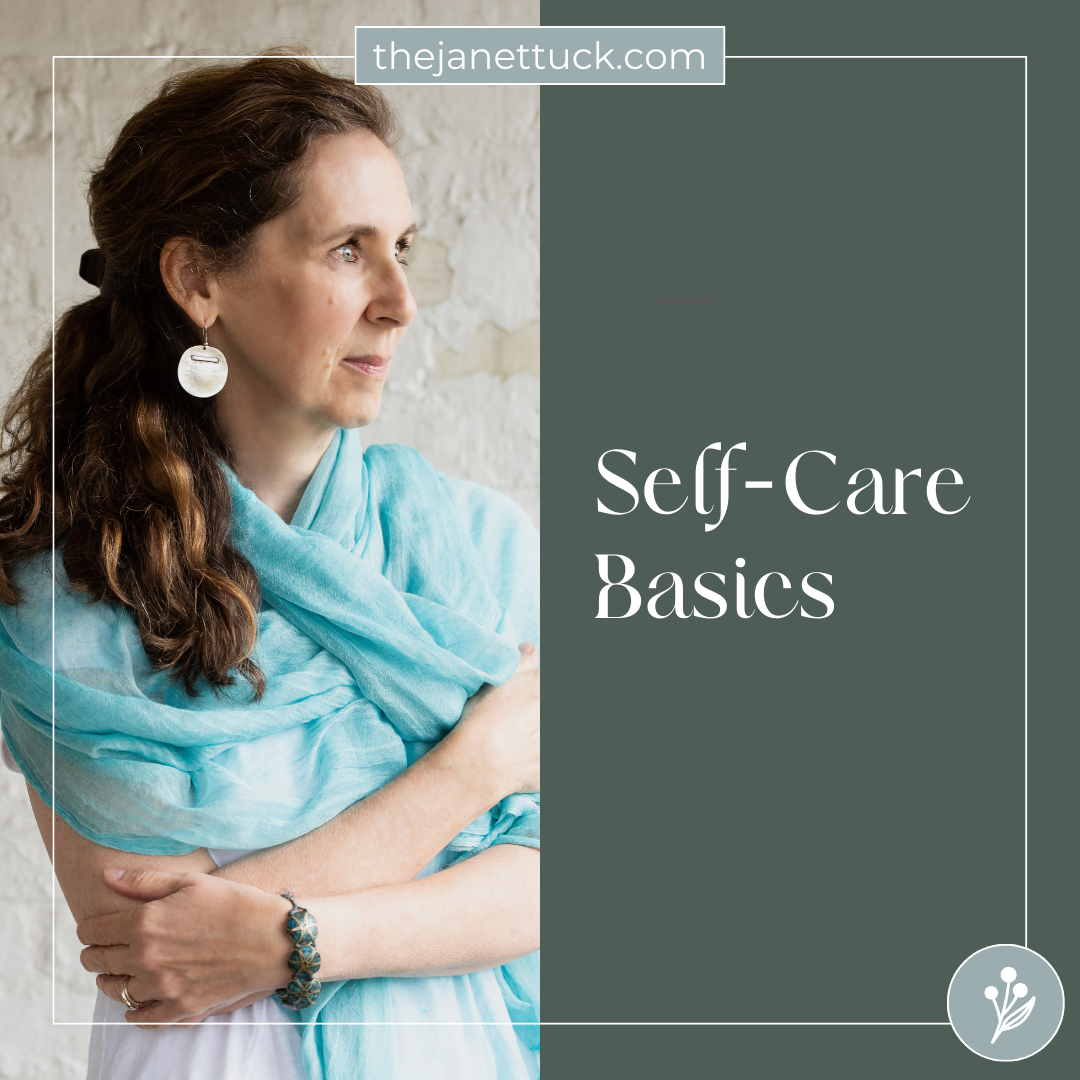Self-Care Basics
We hear a lot about the importance of self-care these days. When I hear that phrase, it’s easy to think of retail therapy, a glass of wine, or booking a massage. But the truth about self-care is that it’s a daily practice rather than the occasional indulgence, much closer to flossing the teeth than it is to a mani-pedi.
Self-care isn’t glamorous, easy, or about those feel-good moments that fade quickly. Instead, self-care is simple, basic, daily or weekly practices that help us feel well, and be well, in a sustained manner. True self-care helps us thrive, both day to day, and over the long term.
So, what am I talking about? Self-care is investing in your physical, emotional, and spiritual wellness. Like flossing, it needs to be attended to regularly. And, like flossing, it pays off both in the moment and over time.
Physical Self-Care
Physical self-care is probably the easiest to understand because it is pretty self-evident. Our bodies need care. Our bodies need regular exercise, feeding, watering, and hygiene. We need nutritious meals and checkups from doctor and dentist. Other physical needs include shelter and good sleep habits. These are all things that need to be incorporated into our daily schedules. Physical self-care skills are some of the earliest self-care skills we learn as children with the support of the nurturing adults in our lives who teach us to bathe, brush our teeth, go to bed on a schedule, and make nutritious food choices. If adults who could and would guide us were absent from our childhood, then as adults we take on the responsibility of learning to do these things for ourselves. Physical self-care includes regular exercise, eating a nutritious diet, attending to hygiene, resting, providing shelter and comfort in that shelter. When these physical cares are attended to, we have the energy and ability to turn our attention to our emotional needs.
Emotional Self-Care
Emotional self-care is that activity of learning about our emotions, what they feel like in our bodies, and then learning how to manage those emotions. We may need help with this by finding a good therapist, seeking out trauma recovery therapies, or by getting sober so that we can feel emotions and understand them at a deep level. We may begin practices such as journaling or spending time in nature to better understand the self. Spending time alone and in quiet, stepping away from screens, learning to be still rather than constantly doing, all enhance emotional self-care. Practice over time in working with emotions pays off in more time free from anxiety, anger, or resentment and more time invested in the lighter emotions of contentment, happiness, and joy. Some emotional self-care practices include journaling, therapy, getting regular physical exercise, spending time in nature, slowing down.
Spiritual Self-Care
A next step in self-care is attending to spiritual self-care. This is investing in practices that nurture a sense of connection with something greater than oneself. Whether that is a sense of connection with the Divine Source, with nature, with one’s community, or simply a deep and intimate connection with another human being, these all move the human spirit. Different people find this sense of connection in different ways. Some may find it in traditional religious practices. Others may develop connection through acts of service such as volunteering. Other practices include prayer, singing, drumming, spending time in nature, dancing, appreciating beauty, meditation, journaling, or practicing yoga. There are many ways to develop spiritual connection, find what works for you.
This is a very basic beginning description of self-care. I’ll be writing more about deeper ways to care for the self. Any action helps. Take a small step today.
Sending love,
Janet

